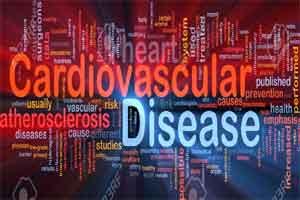- Home
- Editorial
- News
- Practice Guidelines
- Anesthesiology Guidelines
- Cancer Guidelines
- Cardiac Sciences Guidelines
- Critical Care Guidelines
- Dentistry Guidelines
- Dermatology Guidelines
- Diabetes and Endo Guidelines
- Diagnostics Guidelines
- ENT Guidelines
- Featured Practice Guidelines
- Gastroenterology Guidelines
- Geriatrics Guidelines
- Medicine Guidelines
- Nephrology Guidelines
- Neurosciences Guidelines
- Obs and Gynae Guidelines
- Ophthalmology Guidelines
- Orthopaedics Guidelines
- Paediatrics Guidelines
- Psychiatry Guidelines
- Pulmonology Guidelines
- Radiology Guidelines
- Surgery Guidelines
- Urology Guidelines
New Joint European Cardiovascular Prevention Guidelines Launched

The highly anticipated document gives the latest advice on prevention of cardiovascular disease (CVD) in individuals and populations. It is published in European Heart Journal,1 the European Journal of Preventive Cardiology and other specialty journals, and presented in a dedicated session at Heart Failure 2016 and the 3rd World Congress on Acute Heart Failure in Florence, Italy.2
"The last 30 years have witnessed a decrease in deaths from CVD, mainly due to improved treatment of heart disease, and falls in cholesterol, blood pressure and smoking," said Professor Massimo F. Piepoli, Chairperson of the guidelines Task Force. "This trend is partly offset by rising obesity and type 2 diabetes, and poor adherence to lifestyle changes."
The document was written by the sixth joint Task Force of the European Society of Cardiology and nine other societies. It argues that CVD mortality rates could be halved by modest risk factor reduction. New scientific evidence has led to adapted target levels for important risk factors, such as blood pressure and lipids. Special attention has been dedicated to younger adults and to the elderly.
Reducing population risk by 1% would prevent 25 000 CVD cases and save €40 million per year in a single European country. Stronger laws and policies on food, physical activity and smoking are needed, such as:
Food
- Legislate food composition to reduce calories, salt, saturated fat, sugar, and limit portion sizes
- Eliminate industrially produced trans fats
- Legislate to restrict marketing foods high in fat, sugar and salt to children
- Tax foods rich in sugar and saturated fat, and alcoholic drinks
- Make water and healthy food available in schools and workplaces
- Regulate location and density of fast food outlets.
Physical activity
- Consider physical activity when planning new landscaping, buildings or towns
- Post signs to encourage use of stairs
- Increase fuel taxes
- Provide tax incentives to buy exercise equipment or gym membership
- Give financial incentives to lose weight and increase fitness.
Smoking
- Restrict advertising, marketing and sale of smokeless tobacco
- Ban smoking in school, pre-school and child care to protect from passive smoking
- Advise parents to be tobacco-free when children are present and never smoke in cars or at home
- Give electronic cigarettes the same marketing restrictions as cigarettes.
The detrimental impact of air pollution on heart health is highlighted, and the authors say the media can inform the public about air quality (for example by using apps) and provide smog alerts. Air quality can be improved by reducing taxes on electrical and hybrid cars. New houses and schools should be built away from highways and polluting industries.
Professor Piepoli said: "A healthy environment is essential for preventing CVD. Lawmakers need to take more responsibility for their nation's wellbeing by taxing unhealthy choices and incentivising healthy ones."
Novel recommendations are given for patients with rheumatoid arthritis, erectile dysfunction, and patients receiving treatment for cancer. Women with a history of pre-eclampsia, premature birth, polycystic ovary syndrome or gestational diabetes should be screened for diabetes and hypertension. CVD risk varies considerably between immigrant groups and ethnicity should be considered in CVD risk assessment.
Professor Arno W. Hoes, Task Force Co-chairperson, said: "The recommendations cover the entire spectrum of CVD prevention in individuals and populations. We all have a role to play to stop heart disease."

Disclaimer: This site is primarily intended for healthcare professionals. Any content/information on this website does not replace the advice of medical and/or health professionals and should not be construed as medical/diagnostic advice/endorsement or prescription. Use of this site is subject to our terms of use, privacy policy, advertisement policy. © 2020 Minerva Medical Treatment Pvt Ltd